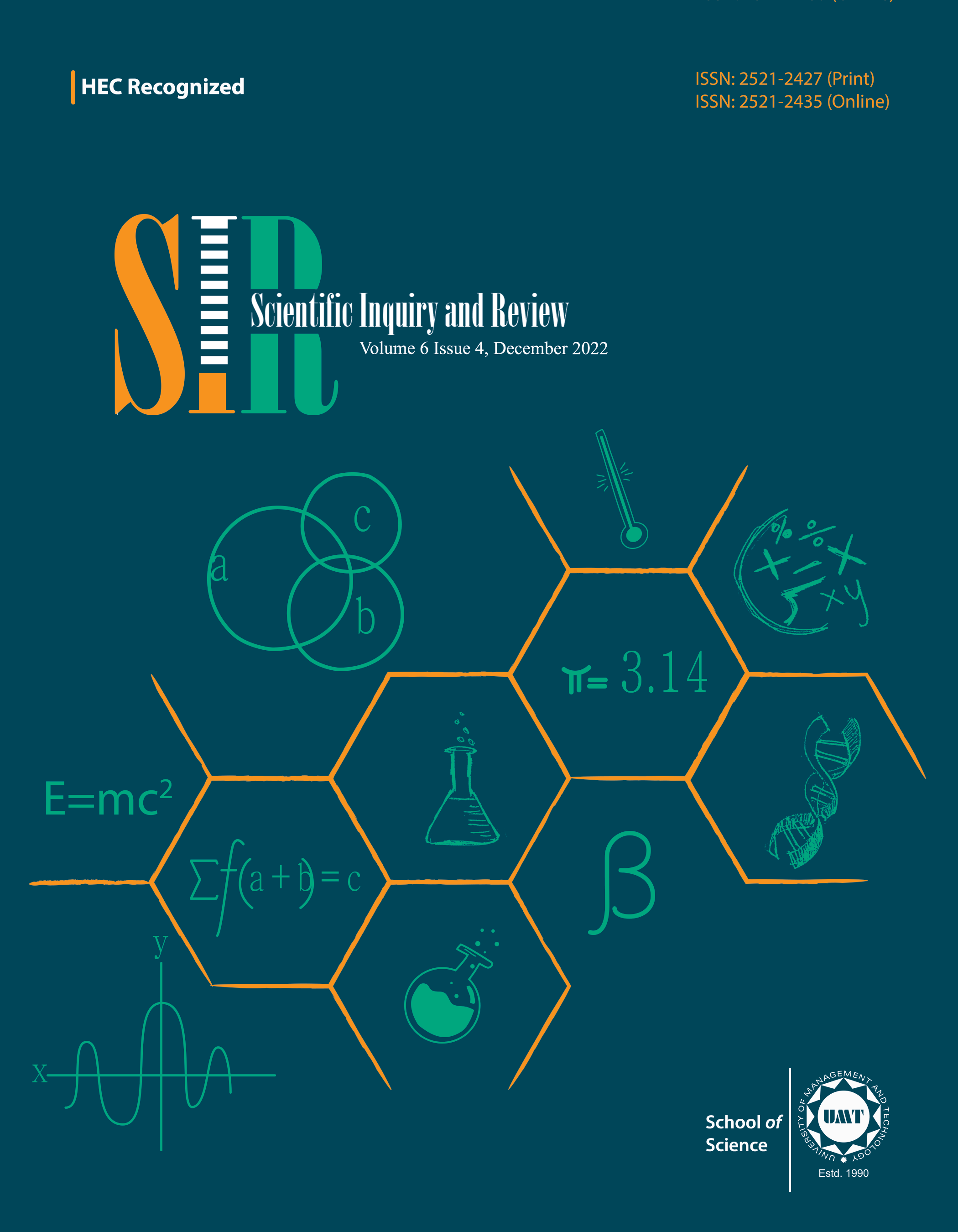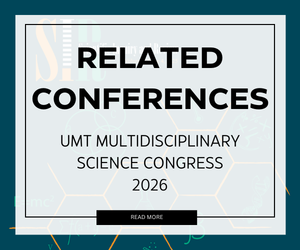On the Existence of Fault-Tolerant Numbers of Two-Bridge Knots
Abstract
 Abstract Views: 118
Abstract Views: 118
DNA is a hereditary material of every cell which is the fundamental molecule in the transfer of encrypted information about cells from parent cells to daughter cells. The long-chain DNA molecule is tightly tangled to fit in the nucleus. The supercoiled DNA resembles a complicated knot in the structure. Every cellular process involving DNA like recombination, catenation, de-catenation, replication, and sequencing are initiated by the relaxation of the supercoiled DNA using enzyme action. The enzyme activity, which is used to untangle DNA is analogous to the process of unknotting a knot. The unknotting number refers to the least number of enzyme topoisomerase II actions. A new variant of the unknotting number namely fault-tolerant unknotting number ensures the un-entanglement of DNA knot in spite of the failure of enzyme activity at some point. This article investigates, a special family of knots named two-bridge knots for the existence of fault-tolerant unknotting numbers. Furthermore, the current study explores the subfamilies of two-bridge knots for fault-tolerant unknotting numbers. Besides this, two special subfamilies, C(a,a1,a2,a3,…,±2,-ak,-a(k-1),…,-a2,-a1 ) and C(2n,3) of two-bridge knots with unknotting number 1 and n respectively are explored for a variant of fault-tolerant unknotting number called restricted fault-tolerant unknotting numbers. Lastly, this paper concludes by explicating biological disposition of fault-tolerant unknotting numbers in terms of enzyme action on the DNA.
Downloads
References
Adams CC, Brown CC. The knot book: An elementary introduction to the mathematical theory of knots. Nature. 1994;371(6498):568-568.
Lickorish WBR. An introduction to knot theory. Graduate Texts in Mathematics. 1997;1:1-204. https://doi.org/10.1007/978-1-4612-0691-0
Kauffman LH, Lambropoulou S. Tangles, rational knots and DNA. In: Ricca R. ed. Lectures on Topological Fluid Mechanics. Lecture Notes in Mathematics. Berlin, Springer; 2009. https://doi.org/10.1007/978-3-642-00837-5_3
Alberts B, Johnson A, Lewis J. Molecular Biology of the Cell. 4th ed. New York: Garland Science; 2002.
Khan S, Ullah MW, Siddique R, et al. Role of recombinant DNA technology to improve life. Int J Genomics. 2016;2016:e2405954. https://doi.org/10.1155/2016/2405954
Heather JM, Chain B. The Sequence of sequencers: The history of sequencing DNA. Genomics. 2016;107(1):1-8. https://doi.org/10.1016/j.ygeno.2015.11.003
Soren BC, Dasari JB, Ohaviani A, Iacovelli F, Fiorani P. Topoisomerase IB: A relaxing enzyme for stressed DNA. Cancer Drug Resist. 2020;3(1):18-25. https://doi.org/10.20517/cdr.2019.106
Schubert H. Uber eine numerische knoten invariante. Math Z. 1954;61(1):245-288. https://doi.org/10.1007/BF01181346
Schubert H. Knoten mit Zwei Brucken. Math Z. 1956;65(1):133-170.
Torisu I. The determination of the pairs of two-bridge knots or links with Gordian distance one. Proceedings of the American Mathematical Society. 1998;126(5):1565-1571.
Hartley RI. On two-bridge knot polynomials. J Aust Math Soc. 1979;28(2):241-249. https://doi.org/10.1017/S1446788700015743
Kanenobu T, Sumi T. Polynomial invariants of 2-bridge links through 20 crossings. Adv Pure Appl Math. 1993;20:125-145. https://doi.org/10.2969/aspm/02010125
Wit DD. The 2-bridge knots of up to 16 crossings. J Knot Theory Ramif. 2004;16(8):997-1019. https://doi.org/10.1142/S021821650700566X
Demir AS. Identification of 2-bridge links. G Topol. 2019:1¬¬-7. https://doi.org/10.48550/arxiv.1909.02889
Ali U, Saleem M, Qureshi AM, Riaz I, Shah M, Gao W. A variant of the unknotting number of a knot with applications to the topology of biomolecules. EPL. 2020;131(5):e50004. https://doi.org/10.1209/0295-5075/131/50004
Hussain IF, Mehreen K, Rani A, Baig AQ, Ali U. Fault-tolerant numbers of a knot and DNA topology, preprint. file:///C:/Users/23904/Downloads/Fault_tolerant_mosaic_encoding_in_knot_b.pdf
Bernhard JA. Unknotting numbers and minimal knot diagrams. J Knot Theory Ramif. 1994;3(1):1-5. https://doi.org/10.1142/s0218216594000022
Conway JH. An enumeration of knots and links, and some of their algebraic properties. Computational Problems in Abstract Algebra. 1970:329-358. https://doi.org/10.1016/b978-0-08-012975-4.50034-5
Bankwitz C, Schumann HG. Über viergeflechte. Abh Math Univ Hamburg. 1934;(10):63-84. https://doi.org/10.1007/BF02940679
Reidemeister K. Knoten und Verkettungen. Math Z. 1929;29(1):713-729. https://doi.org/10.1007/BF01180559
Ham JY, Lee J. The volume of hyperbolic cone-manifolds of the knot with Conway’s notation C(2n, 3). J Knot Theory Ramif. 2016;25(6):e1650030. https://doi.org/10.1142/s0218216516500309
GoodRick R. Two bridge knots are alternating knots. Pac J Appl Math. 1972;40(3):561-564. https://doi.org/10.2140/pjm.1972.40.561
Kanenobu T, Murakami H. Two-bridge knots with unknotting number one. Proc Amer Math Soc. 1986;98(3):499-502. https://doi.org/10.2307/2046210
Kohn P. Two-bridge links with unlinking number one. Proceedings of the American Mathematical Society. 1991;113(4):1135-1147.
Nakanishi Y. Unknotting number and knot diagram. Rev Mat Univ Complut Madrid. 1996;9(2):359-66. https://doi.org/10.5209/rev_REMA.1996.v9.n2.17585
Delgado JL, Hsieh CM, Chan NL, Hiasa H. Topoisomerases as anticancer targets. Biochem J. 2018;475(2):373-398. https://doi.org/10.1042/BCJ201605839
Lima DC, Mondragon A. Mechanism of type II DNA topoisomerase: A tale of two gates. Structure. 1994;2(6):559-560. https://doi.org/10.1016/s0969-2126(00)00055-1
Martin IV, MacNeill SA. ATP-dependent DNA ligases. Genome Biol. 2002;3(4):1-7. https://doi.org/10.1186/gb-2002-3-4-reviews3005
Rolfsen D. Knots and Links, Publish or Perish Inc. Berkeley; 1976.
Kauffman LH. Virtual knot theory. Eur J Combin.1999;20:663-691. https://doi.org/10.1006/eujc.1999.0314
Copyright (c) 2022 Usman Ali, Iffat Fida Hussain, Anam Rani

This work is licensed under a Creative Commons Attribution 4.0 International License.







